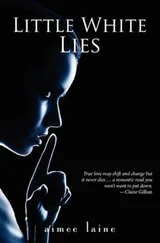
‘You planned this delay all along,’ Mrs Vickers seethes. ‘Well, two can play at that game, Scarface.’
The final treatment has forced her waters to break. The birth has begun. The contractions are coming strongly — and the baby has slipped from the whare tangata into the birth canal.
Paraiti ignores the accusation. ‘Your trial will soon be over,’ she answers, ‘and it will be advisable for you to focus on the difficulties ahead. A normal birth is difficult enough. One that has been induced as forcefully as this, and before time, is more so.’
Yes, Mrs Vickers has stamina all right but, even so, she is being truly tested. She is dressed in a white slip, the cloth already stained at her thighs. Her skin shines with a film of sweat.
‘How do you wish to give birth, Mrs Vickers?’ Paraiti asks. ‘The Maori way or the Pakeha way?’ She knows the question has a hint of insolence about it but, after all, Mrs Vickers has Maori ancestry and it needs to be asked. Although the Pakeha position is prone, unnatural, Paraiti assumes that this is the way Mrs Vickers would wish the baby to be delivered. Her answer, however, surprises Paraiti.
‘My mother has prepared a place so that I can deliver the Maori way,’ she says. ‘If it was good enough for her illegitimate child, it is good enough for mine.’
Her mother?
Paraiti realises that Mrs Vickers is talking about Maraea. ‘Ki a koe?’ she asks Maraea, and she looks at the older woman to affirm the relationship.
Maraea averts her eyes but nods her head briefly. ‘Yes, I am Rebecca’s mother. But I never thought the pathway would lead to this, Scarface, believe me.’
There is no resemblance at all. One is old, dark, indecisive; the other young, fair, purposeful. What kind of unholy relationship, what kind of charade is this between daughter and mother?
Leading the way, and supporting her daughter as she goes, Maraea beckons Paraiti down the circular stairs and then a further set of steps to a small cellar. She switches on a light and Paraiti sees that Maraea has done her work well. Two hand posts have been dug into the clay, and beneath the place where Mrs Vickers will squat are clean cotton blankets and a swaddling cloth to wrap the baby in.
With a cry of relief, Mrs Vickers shrugs off her slip and, naked, takes her place between the posts in a squatting position, thighs apart. Her pendulous breasts are already leaking with milk. ‘No, I won’t need those,’ she says to Maraea, refusing the thongs that her mother wants to bind her hands with. ‘Do your work, Scarface,’ she pants, ‘and make it quick.’
Maraea has already taken a position behind her, supporting her.
‘Massage your daughter,’ Paraiti commands. ‘Press hard on her lower abdomen and whare tangata so that the baby is prompted to move further downward.’
The whare tangata is collapsing. But there is a heartbeat — faint, but a sign — to reveal that the baby still lives. ‘I am here, child,’ Paraiti whispers. ‘Kia tere, come quickly now.’ She takes her own position, facing Mrs Vickers, and presses her knees against her chest.
‘You will pay for this,’ she says. And suddenly her face is in rictus. She takes a deep breath, her mouth opening in surprise, ‘Oh.’
Paraiti places her hands on Mrs Vickers’ swollen belly. She feels the baby beneath, as it pushes head first against the birth opening. Paraiti’s manipulation is firm and vigorous as she presses and hastens the baby on its way. The contractions are rippling, stronger and stronger, and the first fluids stream from the vagina as the doorway proudly begins to open.
‘Now, bear down,’ Paraiti orders.
Mrs Vickers does not flail the air. Her face constricts and she arches her neck with a hiss. With a gush of blood, undulation after undulation, the baby slides out, head followed by shoulders, body and limbs, into the world. The baby is dark-skinned with wet, matted red hair.
‘A girl,’ Paraiti whispers in awe. ‘Haere mai, e hine, ki te Ao o Tane. Welcome, child, to the world of humankind.’
Quickly, she cradles her, clearing her face of mucus, ready to give her the first breath of life.
‘No,’ Mrs Vickers instructs. ‘Let it die.’
Paraiti does not heed her. Maraea is weeping, restraining Mrs Vickers as Paraiti clears the baby’s mouth and massages her chest. Immediately, she starts to wail. Her eyes open. They are green, shining, angry.
Mrs Vickers falls back, exhausted. She doesn’t even look at her daughter.
Paraiti cuts the umbilical cord and ties it with flax. She places the child at Mrs Vickers’ breast.
Mrs Vickers looks at Paraiti. ‘You broke your agreement to deliver me in six days. I now break mine. This child has no future. Get out.’

‘Have I failed?’
Paraiti’s faith makes her keep watch by the sickle moon on the house of Mrs Vickers. Around two o’clock in the morning, she sees Mrs Vickers and Maraea getting into the Packard.
Earlier, when Maraea showed Paraiti to the door, she said, ‘Rebecca will not kill the baby in this house. She wants to, but I have convinced her of the spiritual consequences of such an act — of having a child ghost destroy the calm of her life. But she will get rid of it. Keep watch and follow closely after us.’
‘E Tiaki,’ Paraiti tells her dog, ‘kia tere. Follow.’ Keeping to the shadows, Tiaki slinks silently in pursuit. Paraiti follows after on Ataahua.
The Packard is travelling fast. Ataahua is at the gallop. Even so, Paraiti has trouble keeping up and has to rely on Tiaki to run ahead, keep watch, return to show Ataahua the way, and run ahead again. Nevertheless, together they manage to hold on to the thin thread of pursuit, and when Paraiti reaches Roebuck Road, she sees the Packard parked on the bridge overlooking the river.
On the other side of the bridge is a small Maori settlement.
Paraiti quickly dismounts and watches from the darkness.
Mrs Vickers gets out of the car and takes a sack from the back seat. She moves very slowly and painfully but with determination. Paraiti hears a thin wail from within the sack. Her eyes prick with tears. She cannot believe Mrs Vickers intends to throw the sack in the river.
But Maraea is objecting. She struggles with her daughter saying, ‘Kaore, daughter, no.’ Mrs Vickers slaps her and she falls to the ground. Then, taking up the sack, she throws it over the bridge as cavalierly as if she is drowning kittens.
‘Aue, e hine,’ Paraiti cries.
She must wait until the car turns and makes its way back to Waterside Drive. Once it has gone past her hiding place she runs to the bridge to look over. The sack is floating away on the dark river; it won’t be too long before it sinks. ‘Haere atu,’ she yells to Tiaki. She points at the sack in the river and he jumps off the bridge and splashes into the water.
Paraiti’s heart is beating as she slips and slides down to the river’s edge. She can hear the thin wail of the child again. ‘Kia tere, kia tere!’ she urges Tiaki. The sack is becoming waterlogged and it is sinking. ‘Quick, Tiaki, quick.’
He is too late. The sack disappears under the water.
With a yelp, Tiaki dives for it — has not his mistress taught him at a favoured lagoon to bring back speared fish from the sea? The depths of the river are dark, so dark. But something flicks across his nose, a trailing piece of twine from the sack as it goes deeper, and he lunges —
Читать дальше













